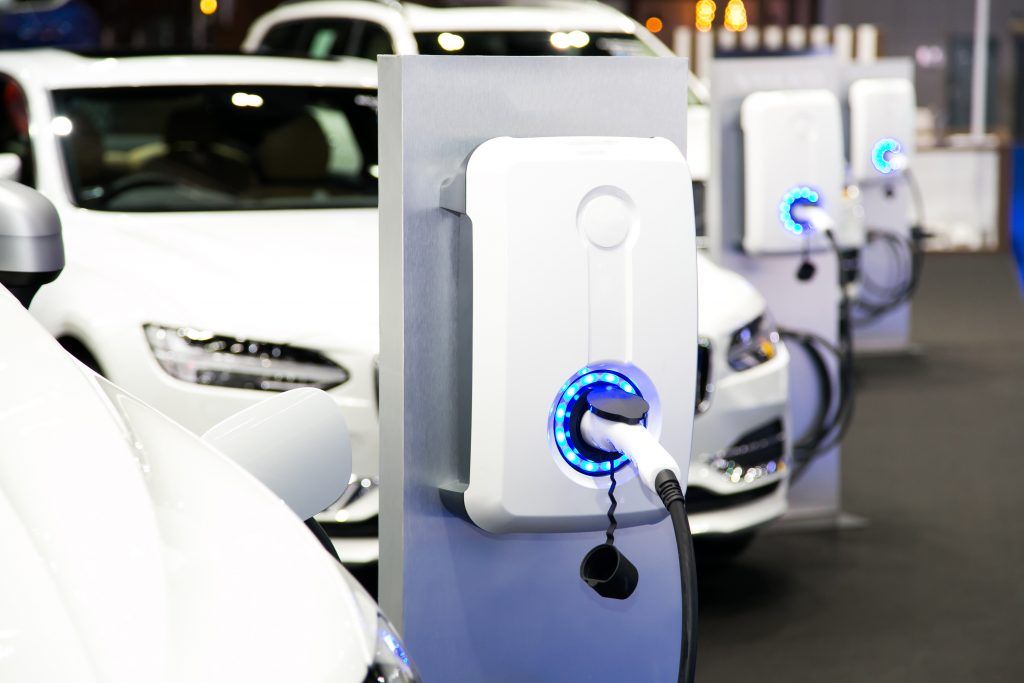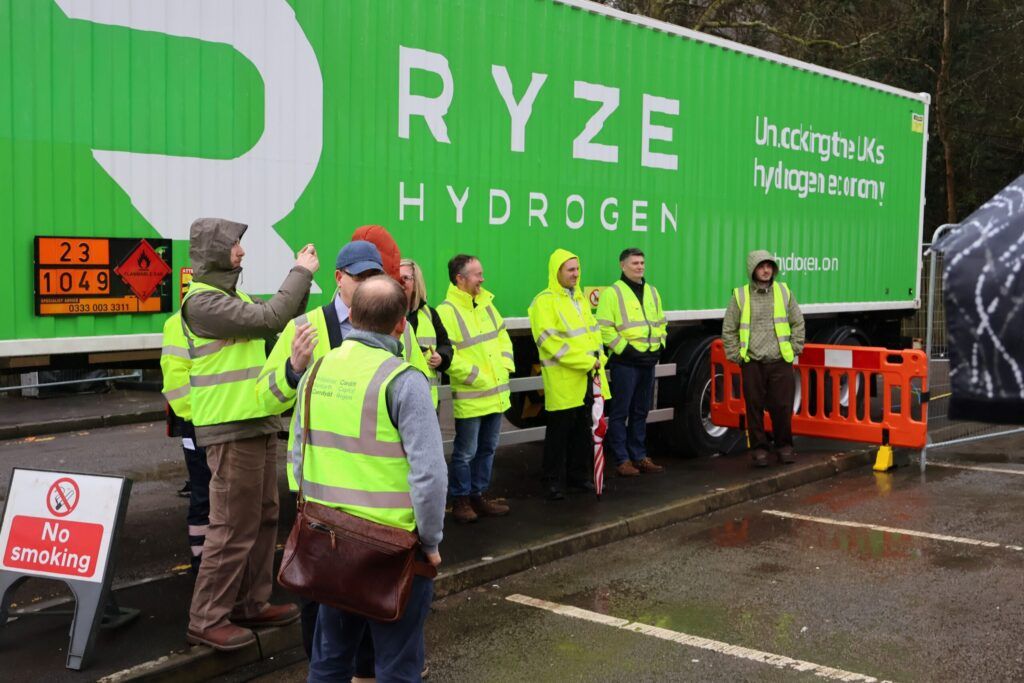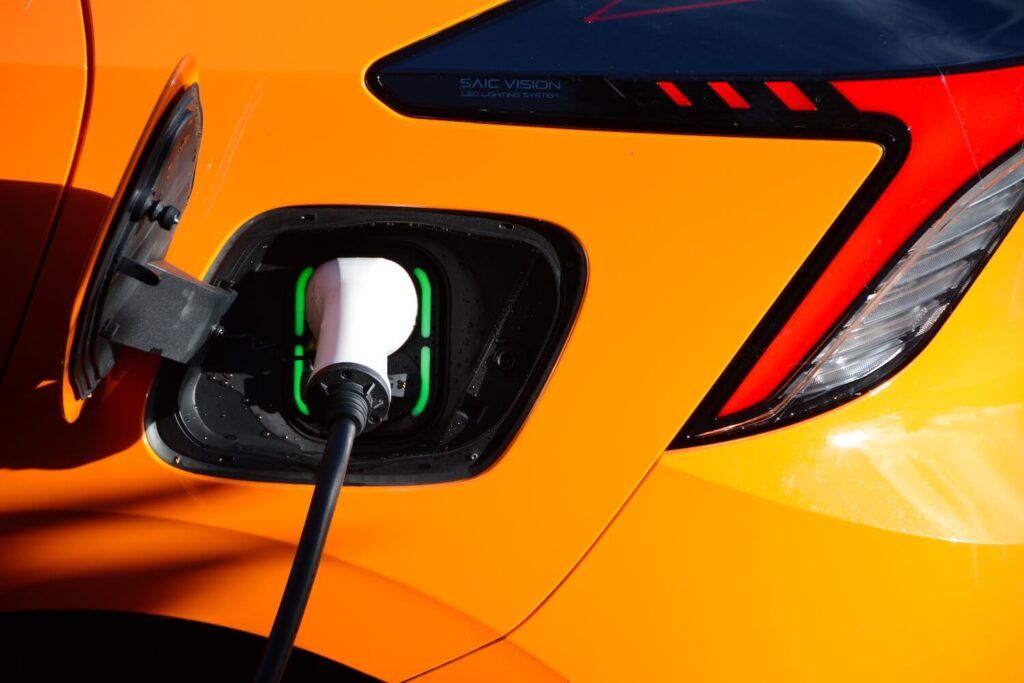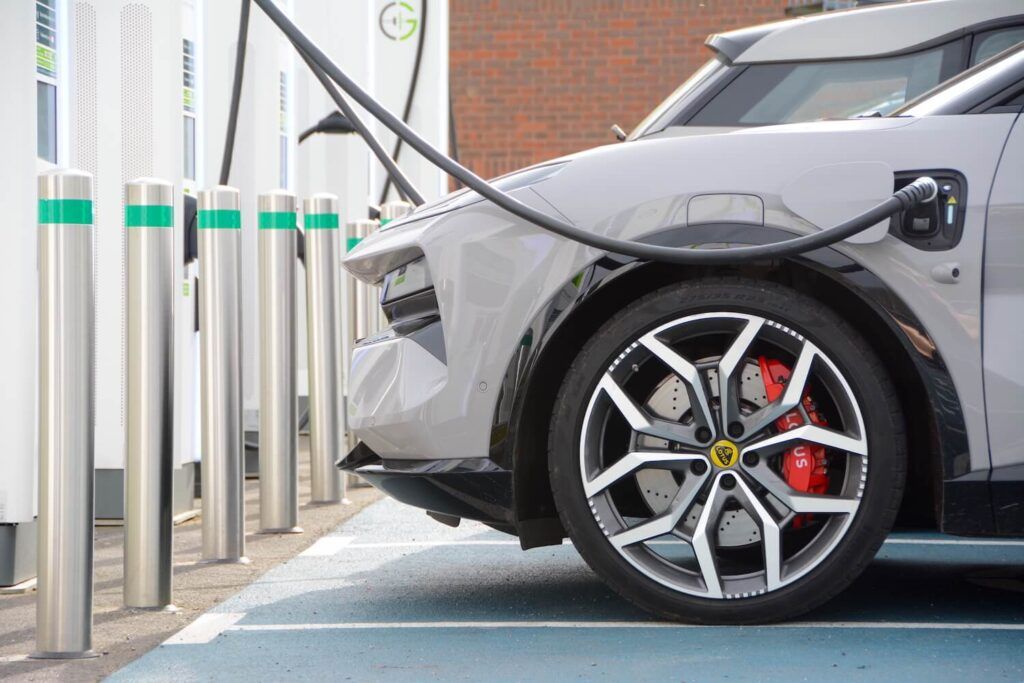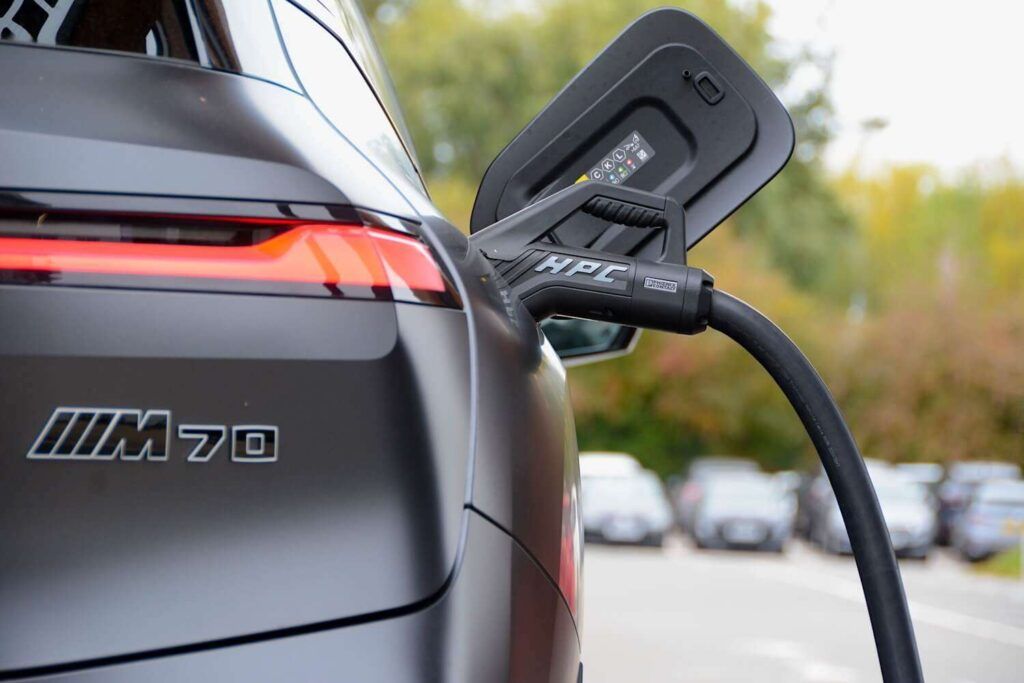The UK has recorded its best ever month for electric car sales with over 68,000 fully-electric cars sold in March, according to figures released by New AutoMotive.
The data shows that electric vehicles (EVs) had their strongest ever start to the year, with sales of EVs up 38% on 2024 in the key month of March. The data signals a sustained rise in demand for electric vehicles as consumers are attracted by running cost savings and a better driving experience.
Tesla’s UK registrations stood still in March, essentially unchanged from a year earlier. Amid surging sales of EVs, Tesla therefore shed some of its share of UK EV registrations, while European brand Volkswagen gained a significant slice of the electric market. Tesla is still the UK’s leading electric brand, but looks likely to be eclipsed by others in the coming months.
At the same time, sales of petrol and diesel cars continue to decline, with petrol registrations falling by 25% in Q1 2025 when compared to Q1 2024, and diesel registrations continued to slide by 15%, accounting for just 5.5% of all new cars.
Under the UK’s Zero Emissions Vehicle (ZEV) mandate, car makers are required to meet a 28% BEV sales target this year. However, New AutoMotive’s analysis suggests that compliance can be achieved with closer to 23% EV sales, thanks to policy flexibilities that allow manufacturers to offset targets with cleaner hybrid and petrol models.
With BEV sales expected to strengthen over the course of the year, manufacturers are expected to collectively hit that target by the end of the year. Some already have, with VW – the UK’s biggest car seller – currently achieving compliance. BMW, too, have a surplus of ZEV mandate credits.
Tariffs on trade with the US are unlikely to have an impact on the UK’s EV market, given the limited imports of EVs from the US and limited exports of EVs to the US.
“March is a key month for car sales, and the data shows that demand for electric vehicles is surging, with the biggest month ever for sales of clean cars.
“The UK’s ZEV mandate is successfully driving up EV sales and enabling more drivers to go electric and benefit from cost savings and a better driving experience.
“As Ministers consider the future of the UK’s ZEV mandate the message from the data is clear: don’t mess with success.”
Dan Caesar, CEO, Electric Vehicles UK (EVUK):
“1 in 5 new car sales being battery electric over the last 8 months is testament to end-user interest in efficient technology; especially in such challenging economic conditions. An average of 24% of new car sales since the general election, as opposed to 17.5% in the prior year, shows that the Government’s zero emission vehicle resolve is encouraging confidence in EVs, as are the stories of real-life drivers.
“With more and more affordable battery EVs entering the country in 2025, and a thriving used sector, the UK is in the process of cementing its position as the leading BEV market in Europe.”
Dr Andy Palmer, Founder / CEO, Palmer Energy Technologies Ltd:
“March is always a bumper month, for all power trains, as new registrations roll off the delivery trucks. EVs had another strong month, up a healthy 38% on year at around 68,000 cars, 21% of the cars registered in Q1. Consumer choice is ramping, with clear signs that the UK market loves the German brands especially VW, as such now is the time to double down on electrification.
“The car sector didn’t cover itself in glory this week with revelations of a cartel arrangement on recycled vehicles. The ZEV Mandate is working, and we must ensure that influential, but biased, lobbying isn’t allowed to dilute something that is ultimately good for both the customer and the long-term health of the car industry”.
James Court, Director of Public Policy at Octopus Electric Vehicles, commented:
“The UK’s EV policy is paying off – EV sales are surging, with March figures up 38% year-on-year, while consumer choice of high-quality, affordable EVs is growing. We must keep up this momentum so that drivers continue to benefit from the latest technology, lower running costs, near maintenance, and cleaner air.”
Ginny Buckley, the chief executive of Electrifying, the electric car advice site said:
“March car sales were always going to be unpredictable – yet EVs remain resilient around 20% of market share in the UK – not only because it marks the start of a new registration period, but also because some buyers brought forward their purchases to avoid being caught out by changes to Vehicle Excise Duty, implemented on 1st April in the form of the luxury car tax. While often referred to as the ‘Tesla tax’, this additional charge applies to all cars priced over £40,000, yet it disproportionately affects electric vehicles.
“The threshold was set eight years ago and no longer reflects the reality of today’s car market and means that buyers of smaller family electric cars — like the Kia e-Niro or Volkswagen ID.3 – could be subject to a tax originally intended for luxury vehicles. The government must urgently review this outdated policy if it’s serious about supporting the switch to electric.”
Quentin Willson, Founder FairCharge, EVUK advisory board member:
“March saw cars with batteries – hybrids, plug in hybrids and EVs – outsell petrol cars two to one. EVs were up 38% since March last year and the growth of EV registrations by car brands with an established electric vehicle model range, is measured in hundreds of percent. In a financially strained economy facing some of the worst geopolitical turbulence since WWII, these are impressive numbers.”
Image courtesy of Shutterstock.




